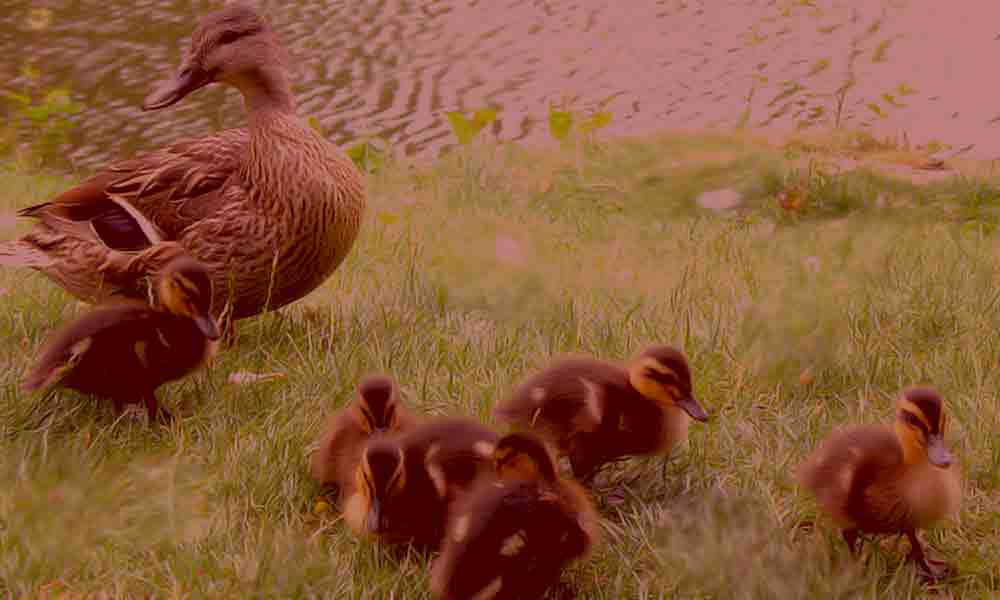
Immigration, Food Chains And Ecosystems

Life on earth is precious. It needs to be protected and that onus entirely rests with the humanity, who in my opinion have a duty to perform as the guardian angels of the planet. Climate, wildlife and ecosystems currently face many threats due to the progress we have been achieving in various fields. In the forward march of the civilization many things will change, will be removed replaced or destroyed forever to pave the way for the progress we have to achieve. The question is where to draw the line.
All the progress which the human kind has achieved in the past few millenniums has become possible due to the migration of people. The number of people migrating from one country to another or one continent to another has exponentially increased in the last few decades due to improvements in our transportation and communication systems. This has both positive and negative effects. Unchecked immigration poses many problems to the economy of the nations which are on both sides of the immigration flow. It also affects their demographics, climate and ecosystems. This is a problem not only in developed countries but also in India and many Asian, African and Latin American countries.
In the debate about climate change and immigration, many are missing an important point, the impact of unchecked immigration upon the local demographics, ecosystems, climate and food chains. It increases natural selection pressure upon certain species due to the changes in demographics and food preferences of people.
For example, some types of animal meat are favored by many people in North America such as meat of frogs, geese, waterfowl, land turtles, wild turkeys, monkeys, chimpanzees and several exotic species. Most people abhor the idea of killing them because of compassion, respect for law, cultural factors, or pure sentiment. Because of it, many species have been enjoying public and government protection and escaping mass extinction. People also follow licensing rules when it comes to hunting wild animals or fishing in local ponds.
However, the situation may not remain the same if immigration continues unabated as the new migrants may not have the same food preferences or attitude towards certain animal species. As people with different food habits, lifestyles, hunting preferences settle in this country, many wildlife species which have been so far enjoying public patronage and protection may either become extinct or end up becoming food to those who have no reservation about killing them or eating. Frog meat, snake meat, and duck meat are staple diet in many cultures and for such people the natural resources and vast opens spaces in the country, with hardly any supervision, offers many avenues to bring food to their tables.
The worst victims will be vulnerable species such as frogs, migrating birds, water fowl, gees, wild turkey, snakes, reptiles, turtles, ostriches, and so on. Once can already see people entering private residential areas, looking for fish and water fowl, ignoring the trespass and licensing rules. They may be doing it even after knowing that entering private property is a criminal offence. Many wild animals are protected by federal and State laws. However, unchecked immigration, urbanization and increased population density may make enforcement of such laws very difficult.
It is time that someone does research on the impact of unchecked legal and illegal immigration upon the local ecosystems and the native wildlife, and how it may transform the local food chains and push many wildlife species into near extinction. Do not be surprised if after a few years you may not see any fish, geese or frogs in the local ponds.
Suggestions for Further Reading
- Perspectives and Viewpoints
- The Wisdom of the Bhagavadgita, Main Page
- Ashtavakra Samhita Translation and Commentary - Index
- Hinduwebsite.com - Selected Quotations
- Hinduwebsite.com - Poetry Section
- Health Information and Resources - Hinduwebsite.com
- Hinduwebsite - FREE online EBooks and Texts
- Hinduwebsite.com - General Knowledge Essays
- Exploring Truth - Hinduwebsite Editorials
- Spiritual Essays For Daily Use
- Suffering and its Solutions in Indian Mysticism
- Hinduwebsite - Essays on Spiritual Practice
- The Way of Peace by James Allen
- How To Cultivate A God Centered Mind
- Yoga the science of breathing
- Essays On Dharma
- Esoteric Mystic Hinduism
- Introduction to Hinduism
- Hindu Way of Life
- Essays On Karma
- Hindu Rites and Rituals
- The Origin of The Sanskrit Language
- Symbolism in Hinduism
- Essays on The Upanishads
- Concepts of Hinduism
- Essays on Atman
- Hindu Festivals
- Spiritual Practice
- Right Living
- Yoga of Sorrow
- Happiness
- Mental Health
- Concepts of Buddhism
- General Essays